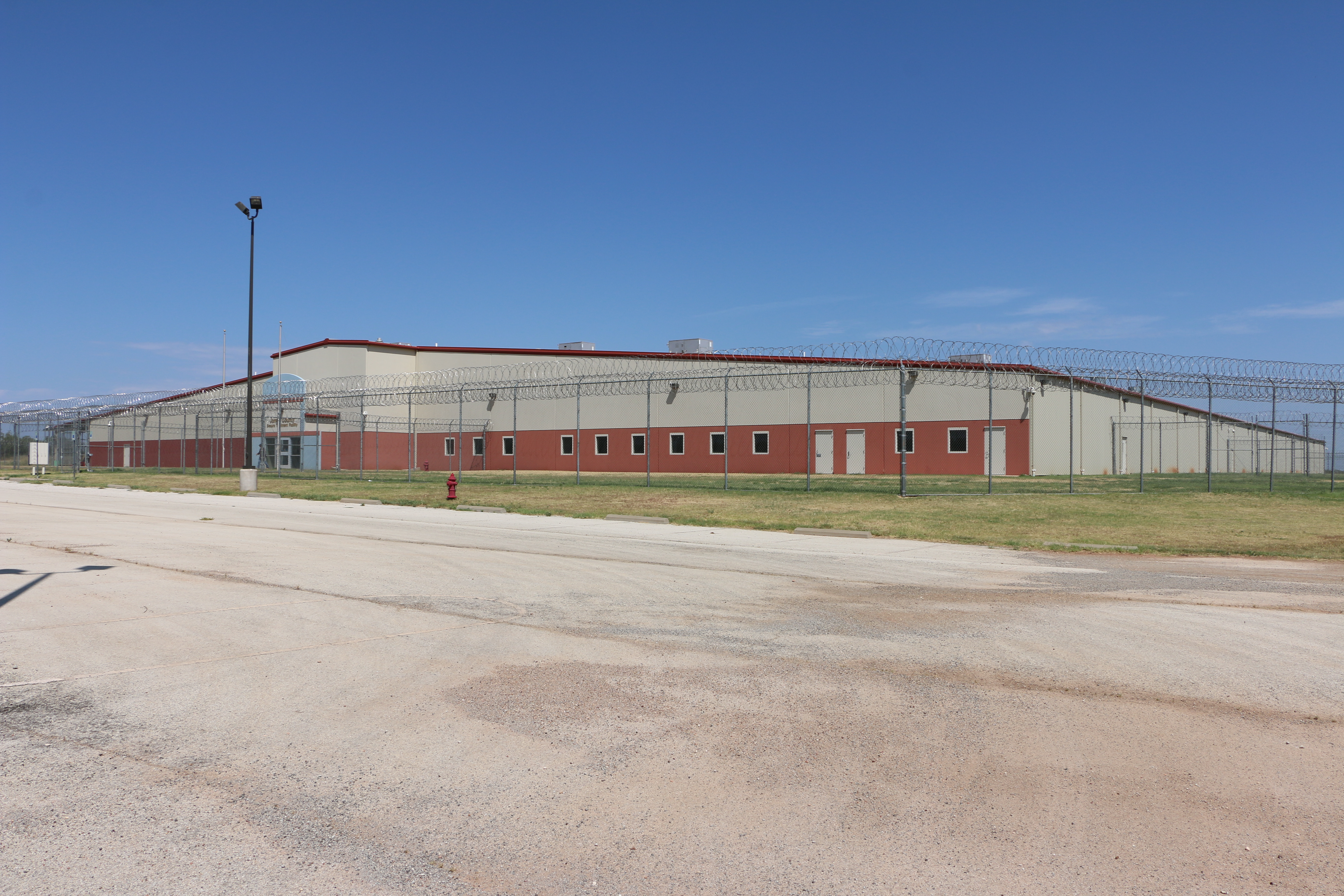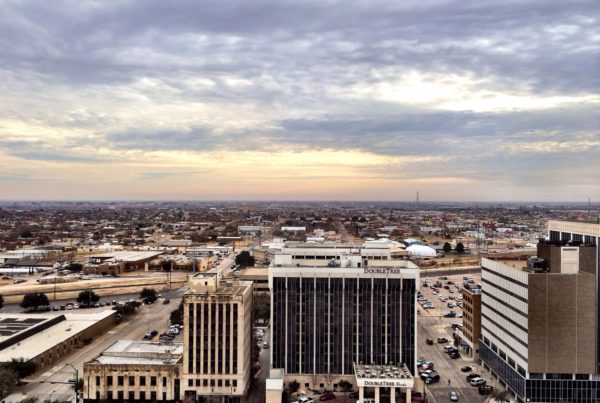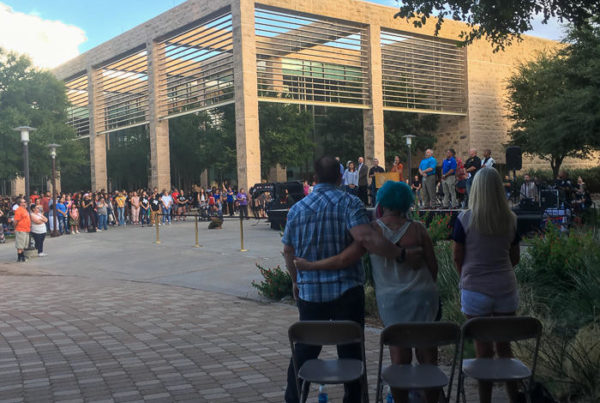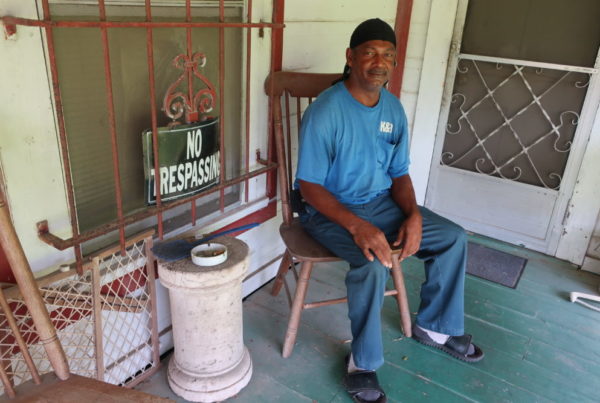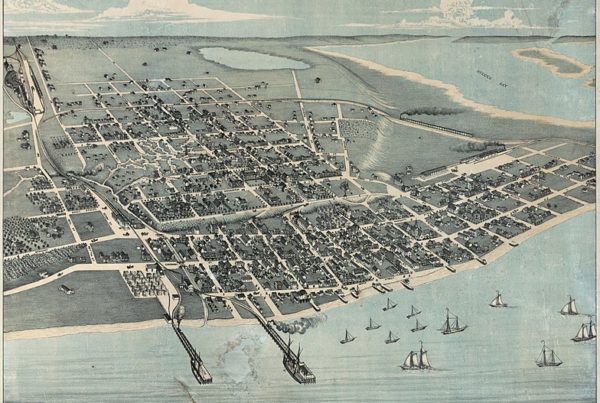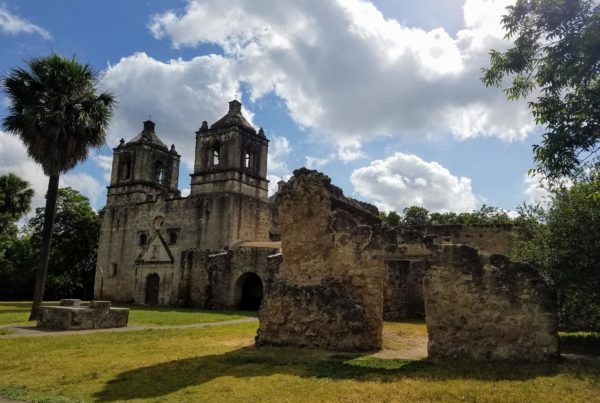For nearly a decade, a brand-new, $35 million prison has sat empty in the north Texas town of Anson. The Bluebonnet Detention Facility was built after the state of Texas told Jones County officials they would love to have a new prison located there. Then, those same Texas officials changed their minds. Now, the nation’s immigration crisis may prove a windfall for Anson as federal officials work to create more space for the rising number of unauthorized immigrants detained in the United States.
A decade ago, Jones County officials pinned their collective economic hopes on a new state prison. After signing a contract with state prison officials, they borrowed millions of dollars to build it. But after it was built in 2010, Jones County Judge Dale Spurgin got a fateful call from an official with the Texas Department of Criminal Justice.
“I was out in the facility,” Spurgin says. “Cell phone signal in a metal building is iffy. But I just happened to have enough signal, at one of those intersections of the halls, that I got a call from TDCJ, and said, ‘we’re not comin.’”
It was the worst possible news.
“A warden was hired, and assistant warden was hired and we were fixin’ to start a job fair – because we had to accept inmates again in a 90 day window,” he says.
Here’s what happened. Texas officials had committed to the new prison in Anson just as the numbers of prison inmates were falling, making the facility obsolete before it opened. And Jones County has been looking for a paying tenant ever since because in Texas, cities and counties can’t sue the state without legislative approval, which Judge Spurgin says they pursued for a few years.
“Ultimately it was determined that the Legislature would not grant permission to sue them,” Spurgin says.
The town’s state lawmaker at the time, Rep. Susan King, even tried to get Texas officials to buy the building for $19 million. But that effort went nowhere. And ever since, Jones County officials have been trying everything to recoup the expense of having a 122,000 square-foot facility remain vacant for so long.
Now, nine years after it was built , the Bluebonnet detention center is under new management. Last week, the county signed a deal with U.S. Immigration and Customs Enforcement, or ICE, and with the detention facility’s new operator, Management and Training Corporation, or MTC, to house adult immigrants detained by the federal government.
ICE will pay $106 per day for each adult immigrant detained in Anson. At least 750 will be housed there and none will be children. The new deal is worth $145 million over the next five years. Part of that money will pay off investors who were left holding the bag a decade ago. Jones County will see more than $500,000 annually and better still, it will bring 275 new jobs to a town of 2,400 people.
“I think it’ll be good for Jones County,” says attorney Herb Bristow, who represented Jones County in the negotiations with ICE. He says this deal will bring in good-paying jobs to a rural area where, he estimates, the average wage is about $14 per hour.
“They’re going to be paying federal wages, which start at $21 an hour, with health and welfare benefits of about $5 per hour. So it’ll have a positive impact on the community,” Bristow says.
MTC currently operates four other ICE detention facilities, none of which have come under scrutiny for overcrowding or poor hygiene conditions.
While many local residents support the deal, two local ministers shared their concerns at the Commissioners’ Court meeting on August 26. Wes Horn, a Church of Christ pastor in Stamford, said he was speaking for himself when he asked commissioners not to involve the community in separating families.
“I love our community,” Horn says. “I want what is best for our community. And I’m not sure participating in something that might lead to the breakdown of families is what’s best for our community.”
Horn and Lutheran pastor Richard Straight also pressed officials for access to the facility to minister to detainees. MTC’s representatives said they welcome volunteer help, and that their facility chaplain would work with a program coordinator to determine how to best meet the population’s needs.
In November, the Bluebonnet facility will finally open its doors and take in its first detainees.


